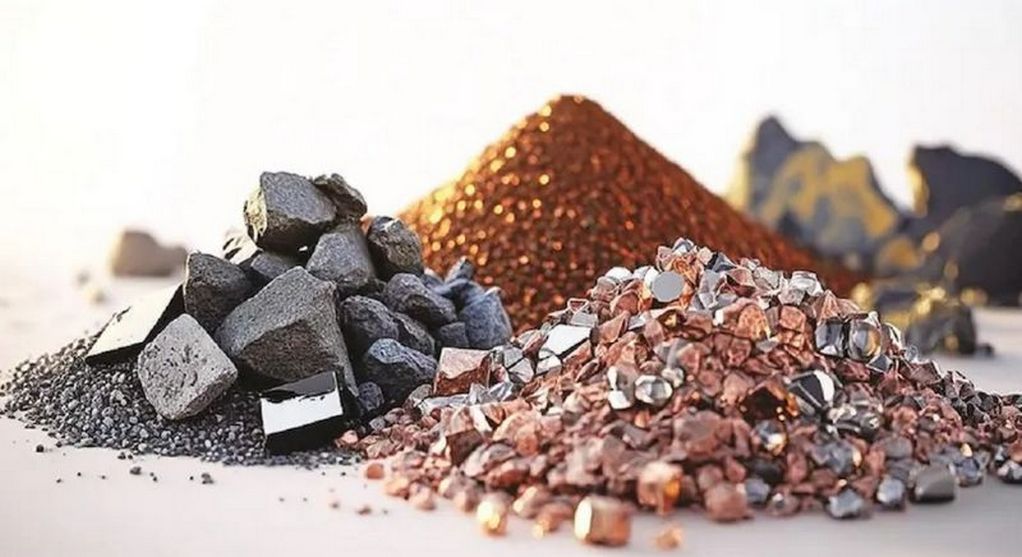At the end of July, a $2.6 billion deal with Brazil’s biggest miner, Vale SA, gave Saudi Arabia a 10 percent interest in mines from Canada to Indonesia that produce copper, nickel and other industrial metals — all critical materials needed to help the world decarbonize. The deal set the stage for a landmark shift in the metal and mining investment landscape and positions the Kingdom as a pivotal global player.
Deals like the one with Vale SA are being staged at a time when governments across the world are questioning who controls the commodities needed to hit decarbonization targets and sustain the world’s economy during intense climate change and volatile markets.
Another factor is China, which has long been the world’s dominant mining country based on mineral production value, reporting over $217 billion in metallic mineral and coal production value, according to Statistica. Yet as geopolitical factors shift, the mining industry is also looking to other players.The development of the Kingdom’s mining industry is one of the cornerstones of the Vision 2030 agenda towards economic growth, diversification and social transformation.
Saudi Arabia is now seeking to take minority stakes in global mining assets that will over time allow it access to key supplies of strategic minerals. To kickstart this process, Alireza explains, Saudi Arabia passed a law in June 2020 to attract foreign investors into the Kingdom’s mining business. The law, which came into effect in January 2021, aids the country in exploring mineral resources worth around $1.3 trillion, according to Invest Saudi.This is all part of a campaign to attract nearly $200 billion in investments in mining by 2030.
According to the Ministry of Industry and Mineral Resources, the Kingdom possesses more than 20 different types of minerals, including gold, copper, iron, granite and marble.In March this year, the ministry announced indicative timelines for the bidding cycles of five new mineral exploration opportunities that were showcased at the Future Minerals Forum 2023 in January in Riyadh.
This action underlines a strategic shift in the Kingdom’s policy towards the discovery and extraction of minerals and metals that will aid the country’s transition towards green energy. The development of the Kingdom’s mining industry is contingent on foreign deals and investment. The Vale deal marks Saudi Arabia’s first major foray into mining, and comes via Manara Minerals, a new venture between the Kingdom’s Public Investment Fund and the Saudi Arabian Mining Company, known as Ma’aden. The Forum this year featured some of the biggest names in mining, including the CEO of the world’s largest mining company, BHP’s Mike Henry.To move ahead, the Kingdom needs to keep investing in its own mining operations, secure more foreign investment, and make deals internationally.
The Kingdom, as it has realized, cannot grow alone, and its economic development and rise in this crucial world industry is contingent upon international collaboration. Tags: Decarbonisation, Indonesia, Saudi Arabia



Recent Posts
IMI Greater Noida Signs MoU with IME (I) to Launch A New Student Chapter
GCMD Completes World’s First Pilot Demonstrating Full Carbon Value Chain from Ship-Captured CO2 in China
NH3 Clean Energy Raises $710,000 to Advance WAH2 Clean Ammonia Project
Coventry University Collaborates with Indian Institutions to Advance Hydrogen Fuel Cell Education
Magenta Mobility partners with MOVER to power sustainable last-mile deliveries across India
Union Home Minister Amit Shah Visits Greenzo Energy’s Green Hydrogen Facility in Sanand
Godrej Enterprises Group (GEG) powers India’s smart, sustainable logistics future
Delhi Expands Electric Bus Fleet with Launch of 100 New DEVi Buses to Boost Green Mobility